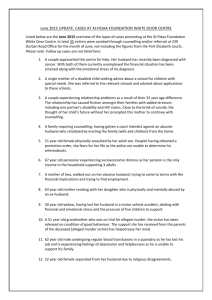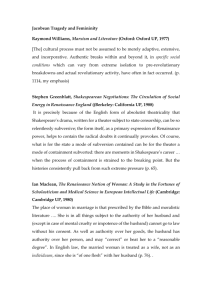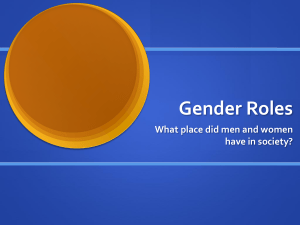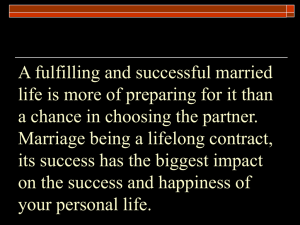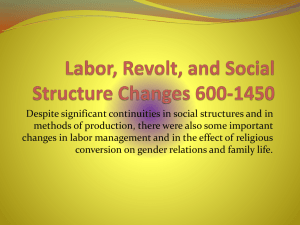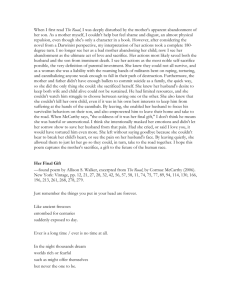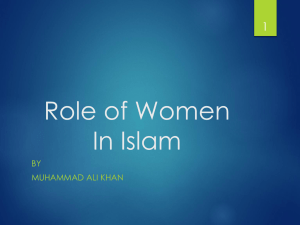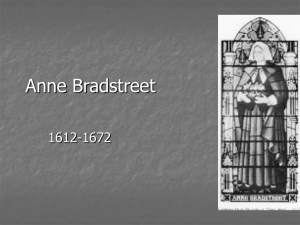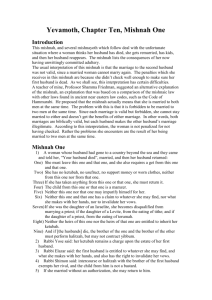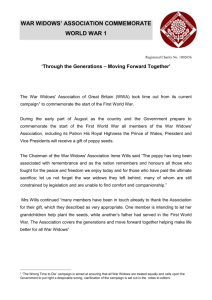Women in the Middle Ages: Roles, Sexism, and Social Status
advertisement
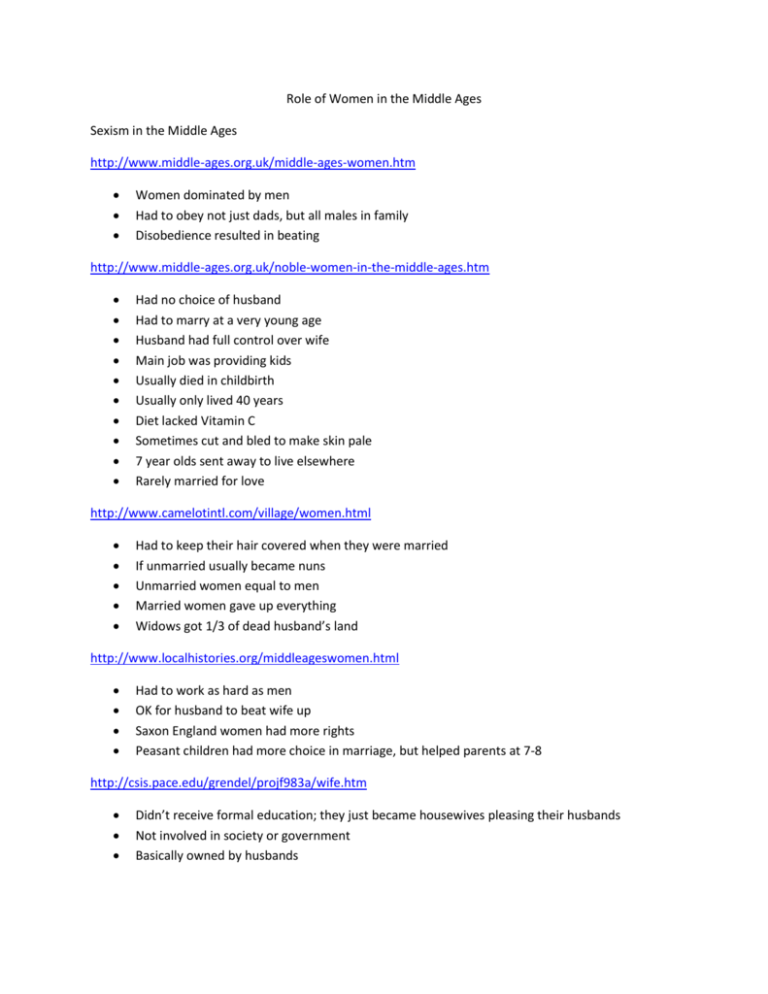
Role of Women in the Middle Ages Sexism in the Middle Ages http://www.middle-ages.org.uk/middle-ages-women.htm Women dominated by men Had to obey not just dads, but all males in family Disobedience resulted in beating http://www.middle-ages.org.uk/noble-women-in-the-middle-ages.htm Had no choice of husband Had to marry at a very young age Husband had full control over wife Main job was providing kids Usually died in childbirth Usually only lived 40 years Diet lacked Vitamin C Sometimes cut and bled to make skin pale 7 year olds sent away to live elsewhere Rarely married for love http://www.camelotintl.com/village/women.html Had to keep their hair covered when they were married If unmarried usually became nuns Unmarried women equal to men Married women gave up everything Widows got 1/3 of dead husband’s land http://www.localhistories.org/middleageswomen.html Had to work as hard as men OK for husband to beat wife up Saxon England women had more rights Peasant children had more choice in marriage, but helped parents at 7-8 http://csis.pace.edu/grendel/projf983a/wife.htm Didn’t receive formal education; they just became housewives pleasing their husbands Not involved in society or government Basically owned by husbands http://www.sequim.k12.wa.us/151920826195715890/lib/151920826195715890/_files/Puzzle_of_Sale m_PP_Crucible.ppt#264,8,Widows Elderly, humble, often widowed women often accused of witchcraft Widows accused because of appearance and they owned land Low social status, so could not verbally defend themselves http://www.medieval-spell.com/Roles-Of-Women-In-The-Middle-Ages.html Barely any legal rights Usually not allowed to divorce/remarry Many peasants not married Respected by the church Nuns could sew and read http://library.thinkquest.org/10949/fief/medlady.html Engaged at 7 Once married, had no rights Needed husband’s permission to vote or write a will In crises, took over men’s jobs Also in charge of servants taking care of kids In charge of entertainment and cooking Only sometimes had own bedroom http://www.medievaltimes.info/medieval-life-and-society/women-in-the-middle-ages.html Society dominated by men; giving birth more curse than blessing Church believed women responsible for sin and responsible for personification of devil in temptation form Medieval queens sometimes ruled alone Not allowed same family or education rights as men Role of society limited to child care and household Widows took care of family http://www.middle-ages.org.uk/daily-life-peasant-women-middle-ages.htm Peasant women woke up at 3 am In charge of all cooking and housekeeping Work longer in summer Only ate when husband and children finished work Little leisure time http://partner.galileo.org/schools/gibson/4-5_fp/Projects/nobleladies_group.html Church considered noble women “gate to the devil” Mattress filled with straw Had to look after servants Main job to give husband a son Had 6-8 kids, most didn’t live past 3 Took over castle when husband away Some fought to defend kingdom Wore many layers to keep warm Only they allowed to wear red/purple Hosted parties Skilled at board games Sometimes cooked 120 piglets, 6000 eggs, or 60 full sized pigs World Book 2006 #17: S-Sn Women not allowed voting Only they bore kids, so had to take care Get less money than men in work, even if educated Not expected to excel in Science or Math Teachers pay less attention to girls Sometimes fired if pregnant Often stereotyped as dependent, gentle, weak Jordan, William Chester. The Middle Ages: A Watts Guide for Children. Judaism favours males Females didn’t receive formal education Widows sometimes made to marry husband’s brother, so valuables remained in husband’s family Men not punished if beating wife, unless drunk or angry Muslims believe men and women unequal Expected to produce boys and marry Peasants did everything in house Huntley, Theresa. Women in the Renaissance. Men had all power Authors though small bones/skulls caused weakness and less intelligence Church blamed sin on Eve in Bible, commited 1st sin Women uable to do much besides have kids Education considered wasted on non-noble women No education because household skills/pleasing husband more important than reading/writing By 1500’s German, Swedish girls required education to learn Bible Beauty VERY important Some women shaved heads, bought wigs to look “ideal” Cosmetics had poisonous chemical, like lead Panties allowed women not to expose selves if riding horses Nobles expected midwives to deliver baby Birth of boys important Brides gave husbands dowry (money and property) Prayed for help in childbirth Even used “magical” objects to assist them in giving birth Eastwood, Kay. Women and Girls in the Middle Ages. Women’s roles differed between classes and marital status Usually moms by 15 Boys important to carry dad’s family name and inherit land If kings died and no sons, daughter became queen Took care of house when husbands fighting Defended castle if attacked After Plague, women found better jobs Some women had their own businesses Peasants paid lord with all their possessions, including baked bread On May Day, peasant women danced around ribbon covered maypole Prettiest girl chosen Queen of the May Before 1100s, all couple had to say was “I do” and then they were married Marriage arranged to bring important families together Poor girls sometimes chose husband Many girls became widows at young age if husbands killed in battle or died of old age Widows received part of husband’s property, called a dower Humble and obedient towards husband, not arguing in public

